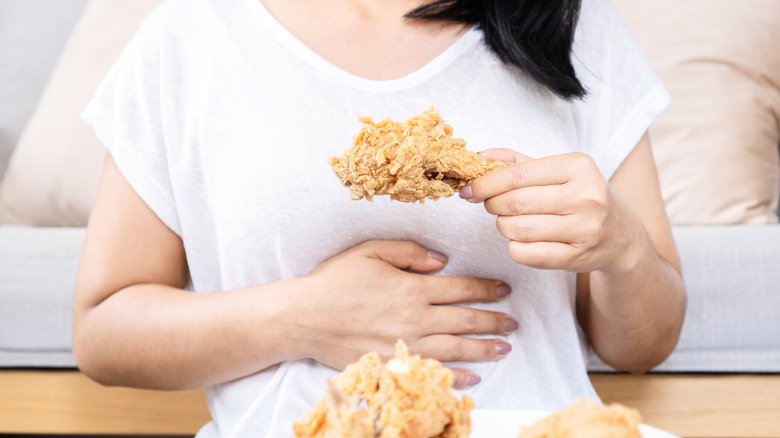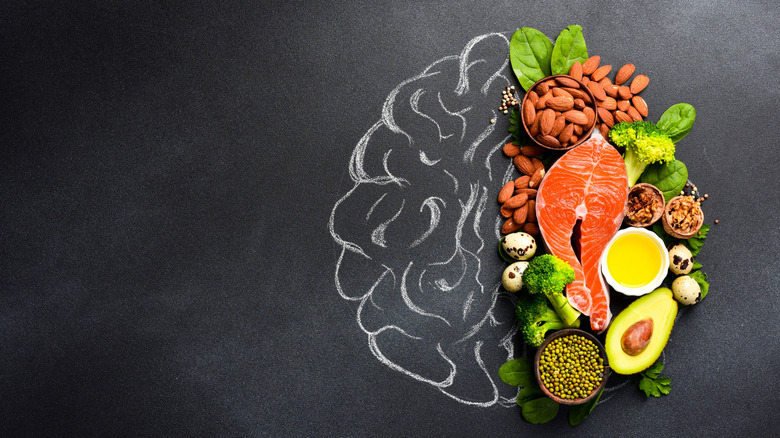Why Your Brain Doesn't Know You've Overeaten Until It's Too Late
We've all experienced the feeling of being full to the brim of our bellies. Often, a short while after eating copious amounts of food like a huge McDonald's – the portions are larger in American than Europe, in case you're wondering – or a classic family dinner at home, the bloating, stomach discomfort, and telltale symptoms of overeating kick in. There's a reason the effects of overeating don't hit us until after we've indulged in a meal, and it's because there's a lag in our body's communication.
It takes around 20 to 30 minutes for the brain to realize that your stomach is full. The stomach stretches as we eat to make room for all the incoming food, and as it stretches, nerves send a message to the brain signaling fullness. The gut produces hormones like ghrelin, which control feelings of hunger, and leptin, which control feelings of fullness. These hormones kick in and travel through the bloodstream as you eat to tell your brain how hungry or full you are — but the downside is that by the time your brain gets the message, your stomach is already sufficiently full.
Overeating can wreak havoc on your body shortly after a meal, causing issues like heartburn, bloating, and general discomfort. If done frequently, it can also lead to long-term health concerns like increased risk of diabetes and hypertension.
How to prevent overeating
While the stomach and brain are less than ideal at communicating in a timely manner, there are some ways to lessen the likelihood that you'll overeat during your next meal. Make sure you aren't skipping any meals, as this can cause you to feel extreme hunger, and lead to eating more than you normally would when you do eat another meal. Drinking water before you eat can promote a satiated feeling to stop you eating too much — ideally drink it around 20 to 30 minutes before the meal.
Other ways to prevent overeating include not eating directly from the container. If you're a bag of delicious plain potato chips, try pouring a serving into a bowl instead of eating straight from the bag to avoid over-indulging. Also ensure you're eating a healthy amount of protein with each meal. Protein reduces levels of ghrelin, helping you feel fuller for longer between meals and snacks.
It's also important to make sure you're not restricting yourself too much from foods you enjoy, and to slow down as you eat. But ultimately, everyone has different methods of mindful eating that work for them, and it may take some experimenting to learn what works best for you and your own personal eating habits.

